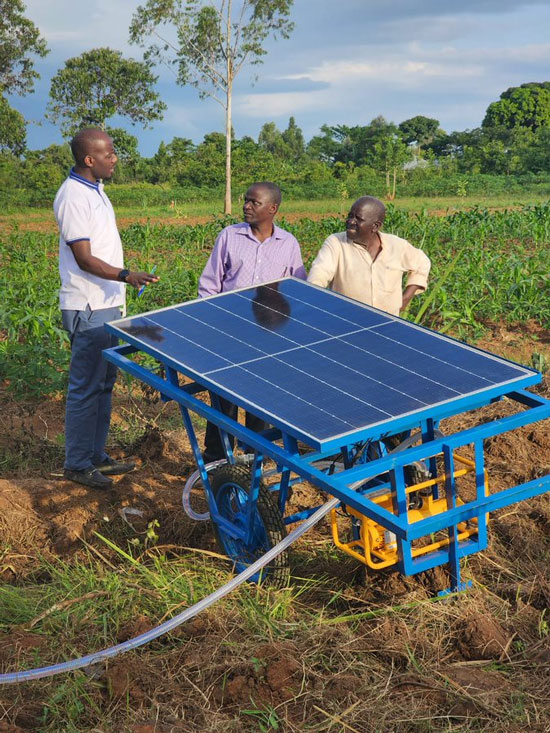
Kampala, Uganda | THE INDEPENDENT | The Ministry of Agriculture, Animal Industry, and Fisheries has blamed the private sector for the low uptake of agricultural solar equipment. Despite the efforts by the government to encourage the use of solar equipment in agricultural processes, the uptake has been very low, despite the increasingly changing weather patterns that affect productivity.
Financiers and agricultural promotion agencies say the low adaptation by farmers, especially smallholder ones is because they find them too expensive to acquire. Moses Kakooza, a private consultant renewable energy expert says the challenges to solar adoption are multifaceted and include small and financially limited startup suppliers, the unattractiveness of SMEs especially rural farmers, and a lack of knowledge about sources of financing.
Now, US-based CS Mott Foundation, which, among others, finances the promotion of renewable energy, has partnered with Innovation Village, a local innovation platform, to help smallholder farmers access sollar equipment for agriculture. The idea is to find innovative ways to boost solar energy adoption by agriculturalists, to raise their productivity levels, quality output, and higher incomes.
Dr Robert Ddamulira, Program Officer, Advancing Climate Change Solutions at Mott Foundation says solar equipment is not necessarily expensive, but that most farmers cannot afford to acquire a unit at once.
He explains that after acquiring and applying solar solutions on their farms, they are likely to earn twice more than when they rely on nature, thus making it cheap in the long run.
However, the initial costs are the main challenge many Ugandan farmers face in acquiring modern agricultural equipment. Ddamulira, however, said there can be solutions to the financial challenge, especially by partnering with financial institutions to offer the equipment on hire purchase. He also suggested that suppliers can deal with well-organized farmer cooperatives to access them with the otherwise costly equipment.
They were speaking at the Agri Solar stakeholder co-creation workshop under the theme “Increasing access to affordable financing to drive adoption and use of solar technologies towards increased smallholder farmer productivity in key agricultural value chains.”
Martin Tumuhereze, an irrigation engineer at the Ministry of Agriculture, Animal Industry and Fisheries, said solar irrigation has been slow to be embraced because of the high costs coupled with a lack of guarantee for the durability of the equipment.
According to him, the dealers in the equipment only mind making money and not the success and sustainability of irrigation agriculture and other solar-dependent activities. This, he said has discouraged Ugandans from adopting solar solutions because of the substandard equipment on the market.
Tumuhereze added that even the government department program to roll out irrigation projects has been affected by the lack of skilled people to implement it. However, he now says, the ministry has managed to post district irrigation engineers across the country.
The purpose of the workshop was to “collectively identify actionable solutions, strategies, and tactical approaches towards unlocking and increasing access to affordable financing to drive adoption and use of solar technologies towards increased smallholder farmer productivity in key agricultural value chains,” according to The Innovation Village. Arthur Mukembo, the Future Lab Studio Lead at the Innovation Village said innovators had a duty to venture into climate change solutions with the aim of boosting productivity.
****
URN
 The Independent Uganda: You get the Truth we Pay the Price
The Independent Uganda: You get the Truth we Pay the Price



